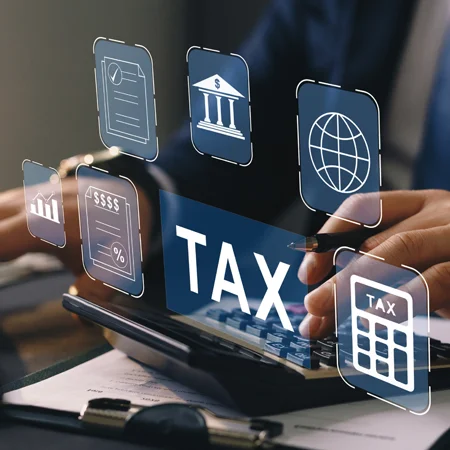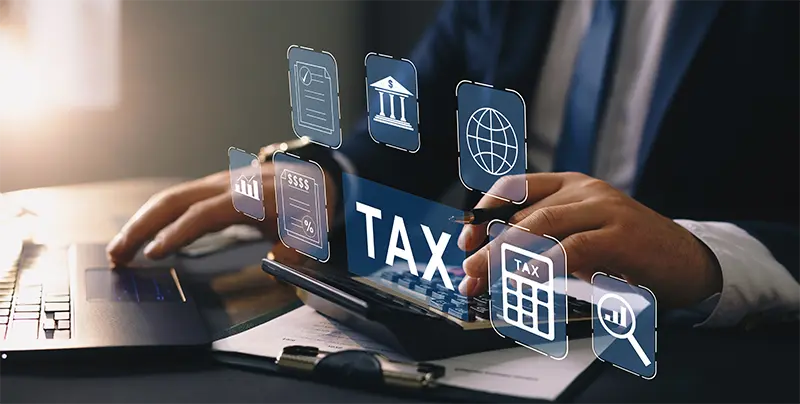The Expat Tax Survival Guide: Malaysia Edition

The Expat Tax Survival Guide: Malaysia Edition
As a Malaysian expat, navigating the complexities of tax compliance can be daunting. Whether you’re working abroad or have investments overseas, it’s essential to understand your tax obligations to avoid penalties and ensure compliance with Malaysian tax laws.
Don’t Get Caught in a ‘Tax Web’!
“Getting caught in a web” is an idiom that means getting entangled in a complicated situation. As a Malaysian expat, tax compliance can be a complex web. But with the right guidance, you can navigate it with ease.
Who is Considered a Tax Resident in Malaysia?
Malaysian tax residency is determined by the number of days you spend in the country. If you’re a Malaysian citizen, resident or expatriate, you’re considered a tax resident if you:
- Spend more than 182 days in Malaysia in a calendar year: or
- Spend more than 182 days in Malaysia in three consecutive years, with at least 30 days spent in Malaysia in the current year.
Tax Obligations for Malaysian Expats
Non-Tax Residents
If you’re a Malaysian citizen or Expatriate and not considered a tax resident in the particular year of reporting your tax return, you’ll need to file Form M with the Inland Revenue Board of Malaysia (IRBM). You will only be taxed on Malaysian-sourced income.
Withholding for Non-Tax Residents via Schedular Tax Deduction
Employers in Malaysia will be required to deduct 30% of your income by way of Scheduled Tax Deduction (STD) until you attain tax residency status. This is a withholding tax on your Malaysian-sourced income which will be utilised against your total tax liabilities for the particular Year of Assessment (YA).
Tax Residents
Once you become a tax resident, you’ll need to file Form BE with the IRBM. You’ll report your Malaysian-sourced income, including:
- Employment income earned in Malaysia;
- Business income earned in Malaysia;
- Rental income from Malaysian properties;
- Interest and dividend income from Malaysian sources.
Note that foreign-sourced income that is not remitted to Malaysia is not subject to Malaysian tax.
Tax Relief and Rebates for Malaysian Expats
Malaysian expats may be eligible for various tax reliefs and rebates, including:
- Personal relief of up to RM9,000;
- Relief for medical expenses, education fees, and other qualified expenses;
- Rebates for taxes paid overseas, subject to certain conditions.
Working in Economic Zones
Malaysian expats working in economic zones, such as:
- Iskandar Malaysia Economic Zone
- East Coast Economic Region
- Johor-Singapore Economic Zone (JSEZ)
may be eligible for special tax incentives.
Tax Incentives
– Income Tax Exemption: Certain economic zones offer income tax exemptions for a specified period, typically ranging from 5 to 10 years.
– Reduced Tax Rates: Some economic zones offer reduced tax rates, ranging from 10% to 20%, for a specified period.
– Tax Holidays: Certain economic zones offer tax holidays, where no tax is payable for a specified period.
Conditions and Requirements
To qualify for these tax incentives, Malaysian expats typically need to meet specific conditions and requirements, such as:
- Employment in a Qualified Industry: Expats must be employed in a qualified industry, such as manufacturing, tourism, or financial services.
- Minimum Investment Requirements: Expats or their employers may need to meet minimum investment requirements to qualify for tax incentives.
- Location-Specific Requirements: Expats must work in a specific economic zone or location to qualify for tax incentives.
Keeping a Travel Movement Record
As a Malaysian expat, it’s essential to keep a record of your travel movements, including:
- Dates of entry and exit from Malaysia
- Destinations and countries visited
- Modes of transport used
- Accommodation details
Advantages of Keeping a Travel Movement Record
- Proof of Tax Residency: A travel movement record can help establish your tax residency status, which is crucial for determining your tax obligations.
- Support for Tax Relief Claims: Keeping a record of your travel movements can provide supporting documentation for tax relief claims, such as claims for foreign earned income.
- Streamlined Tax Audits: In the event of a tax audit, a well-maintained travel movement record can help facilitate the process and reduce the risk of penalties.
Tax Clearance
Before leaving Malaysia, it’s essential to obtain a tax clearance from the Inland Revenue Board of Malaysia (IRBM). This certificate confirms that you have settled all your tax obligations in Malaysia.
Important Caveat
Please note that obtaining a tax clearance certificate does not exempt you from submitting a tax return for the particular Year of Assessment(YA). You are still required to file your tax return and report your income for the year, even if you have obtained a tax clearance certificate.
By doing so, you can ensure that you have fulfilled all your tax obligations and avoid any heavy potential penalties or fines.
Tax Solutions for Malaysian Expats
Every individual’s tax situation is unique, and the information provided in this article may not be applicable to your specific circumstances. Tax laws and regulations are subject to change, and individual tax positions can vary significantly. Therefore, it is essential to consult with a licensed tax agent or professional advisor to ensure compliance with all tax regulations and to receive personalised advice tailored to your specific situation.
The information provided in this article is for general guidance only and is not intended to be a substitute for professional advice. The tax laws and regulations in Malaysia are subject to change, and it is essential to consult with a licensed tax agent or professional advisor to ensure compliance with all tax regulations.



